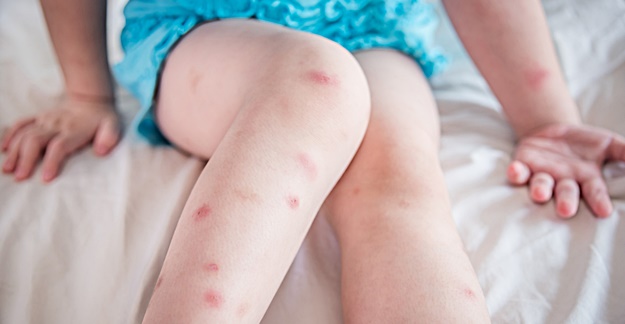No one likes to get bitten by a mosquito, wasp or bee. Find out what works best to treat bug bites and how you can prevent them in the first place.
Outdoor parties, barbecues, picnics, hiking and camping trips are all great ways to celebrate summer with family and friends. And it’s all well and good until the bugs begin bugging you. Whenever I go on an outing, it seems inevitable: If there are mosquitos out there looking for a meal, they’ll always find me before choosing another victim.
Although mosquitos are the big culprits for me, I’m also allergic to flea bites. Both of these insects are just looking to make an easy meal out of my blood. In contrast, most other insects only sting or bite as a defense mechanism. Bees, wasps, hornets, yellow jackets and even spiders are only trying to protect themselves, their hive or nest.
Treatments for Bug Bites Depends on the Severity
Treatment of an insect bite or sting depends on the severity. Most insect bites result in a typical itchy, swollen, red blister-like irritation that can be treated by immediately washing with soap and water and applying ice to the area. This is helpful to prevent infection and reduce symptoms by slowing their progression. If the area becomes inflamed or itchy, use over-the-counter hydrocortisone creams, triamcinolone cream or a topical antihistamine (Benadryl).
My favorite is hydrocortisone 2.5% cream, although this requires a prescription. I use this higher-strength cream as soon as I realize I’ve been bitten. It constricts the blood vessels around the area of the bite. This seems to help lessen the spreading of the reaction and provides improved anti-inflammatory effect, often with only 1 or 2 applications.
Some bee stings and spider bites will need medical attention. A sting or bite that results in hives, swelling of the face, wheezing or difficulty in breathing, dizziness or fainting needs to be evaluated by a medical provider. Any individual who has a history of serious reactions to insect bites or stings needs to be examined.
More severe reactions may occur, including unconsciousness or even death in some individuals. I’ve also seen a few brown recluse spider bites that looked innocent enough but later progressed to skin infections with cellulitis requiring oral antibiotics. Watch for increasing pain or symptoms of increased redness, pus or a red streak that spreads toward your body.
You can protect yourself before you go outdoors by using an insect repellent containing DEET. You can also treat your clothing, shoes, bed nets, etc. with permethrin-containing repellents (Permanone) to ward off insects.






